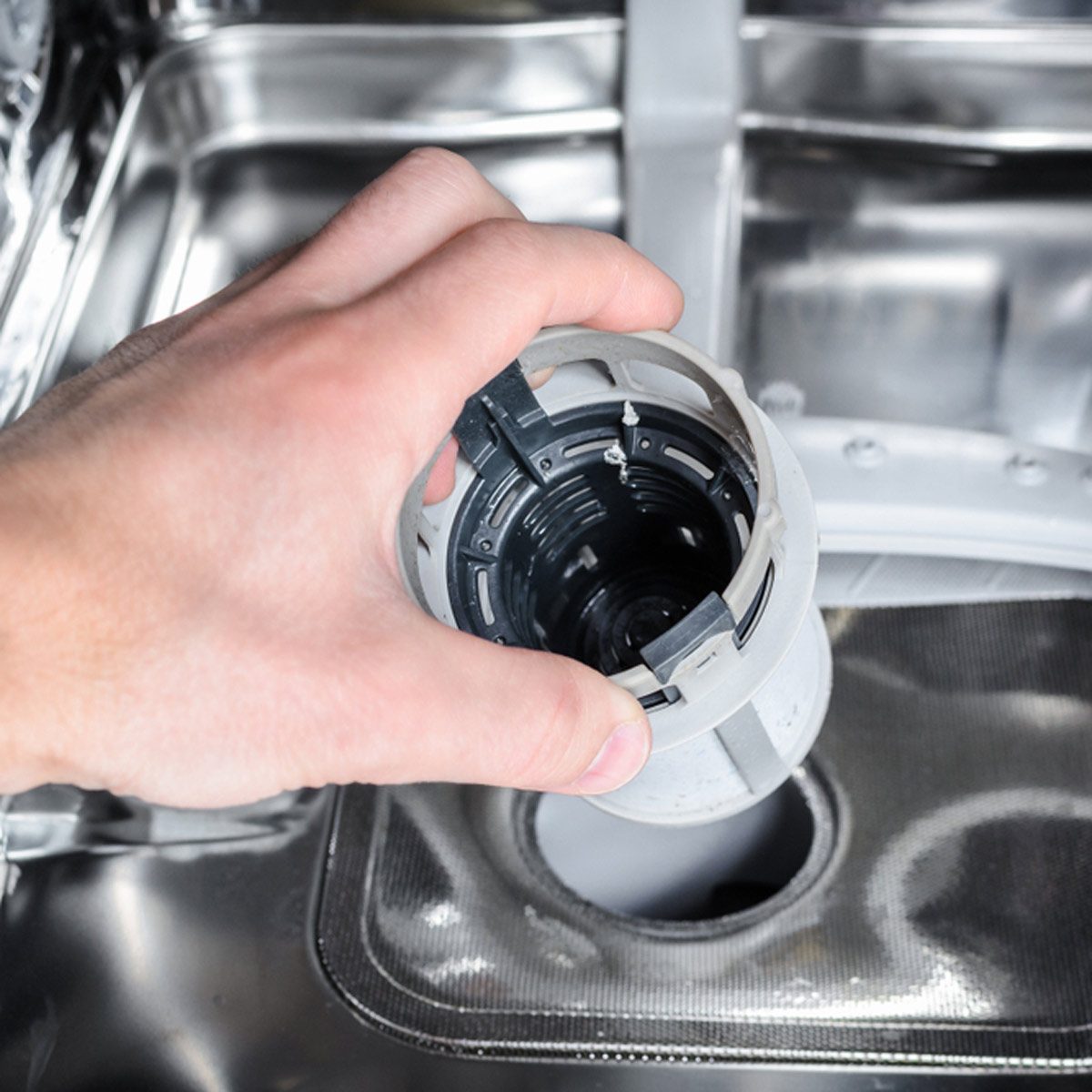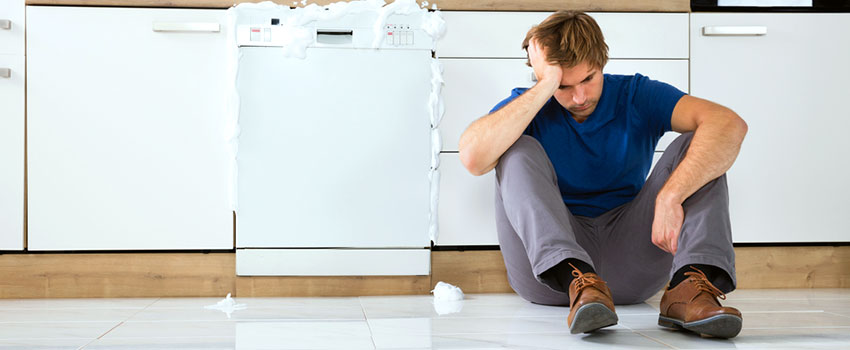Just about every person is bound to have their private theory involving Why is My Dishwasher Not Cleaning Properly?.

Having your dishwashing machine malfunction or malfunction can be a big deal and trigger some pain in your home. Dishwashers are machines that we utilize to clean meals as well as cutleries instantly to conserve us the anxiety of by hand doing it.
Like every other maker that alleviates human effort, dishwashing machines can break down and create some fault at some time in time. There are numerous faults your dishwashing machine can create, and also while a few of them can be resolved by changing some parts or fixing them, other more severe flaws will certainly require that you get a new dishwashing machine.
This post will certainly identify a few typical faults your dishwashing machine can create to hinder its total performance as well as exactly how these faults can be resolved.
Common Mistakes
Typical dishwasher faults can range from small to major ones. Depending upon the degree, you will either need the services of professional plumbings to repair or change it.
Some of one of the most usual mistakes include:
Leaky Dish washer
This is probably the most everyday dish washer problem, and also fortunately is that it is easy to determine. Leakages occur because of several reasons, and the leaks can bungle your cooking area. Typical causes of dishwashing machine leaks include;
Bad-Smelling Dish washer
This is another common dishwashing machine issue, and also it is mainly caused by food debris or grease remaining in the machine. In this case, seek these fragments, take them out and also do the recipes without any recipes inside the device. Wash the filter extensively. That will assist do away with the negative scent. Ensure that you eliminate every food bit from your meals before transferring it to the equipment in the future.
Failure to Drain pipes
Sometimes you might observe a large amount of water left in your tub after a laundry. That is possibly a water drainage issue. You can either inspect the drain pipe for damages or obstructions. When unsure, get in touch with a professional to have it inspected and dealt with.
Does not clean effectively
If your recipes and cutleries come out of the dishwashing machine as well as still look unclean or dirty, your spray arms may be an issue. In most cases, the spray arms can obtain clogged, and it will certainly call for a quick clean or a substitute to function successfully once more.
Final thought
Some of these typical dishwasher faults can be repaired easily at home, yet in many cases, the faults could be huge and may need the attention of professionals. If you live in Rochester, Syracuse, and also other parts of America, let the specialists appropriately diagnose what could be incorrect with your dishwasher and extend an option.
We additionally mount dish washers if you just acquired a new one or plan to change your very own. With our years of experience in the industry, we are sure to offer you the most effective possible solutions.
8 Most Common Dishwasher Problems & How to Fix Them
My Dishwasher Isn't Draining
If your dishwasher isn't draining properly, you may be having an issue with your dishwasher's drainage system. This can be caused by a variety of issues:
Clogged drain: The dishwasher's drain may be clogged with food particles or other debris. Malfunctioning pump: The dishwasher's pump is responsible for moving water through the system and out of the drain. If it's damaged or not working correctly, it could cause a drainage failure. Broken or clogged hose: The dishwasher's drain hose may be broken or clogged, causing water to back up in the system. How to Fix Dishwasher Not Draining
Check the drain for any blockages. A clogged or kinked hose will prevent water from properly draining out of the dishwasher. Use a plunger or a pipe snake to clear any debris that may be blocking the drain. Check the dishwasher's pump for damage or malfunction. Consult the manufacturer's manual or call a professional appliance repair service if you think the pump may be the issue. Check the drain hose for any damage or blockages. The hose should be straight and free of any debris or kinks. Check the drain pump filters for any blockages if the hose is clear, but the dishwasher is still not draining. Some dishwashers have filters that can become clogged with food particles or debris. Cleaning or replacing the filters may help resolve the issue. Run a dishwasher cycle to make sure the water is properly draining out. My Dishwasher Is Leaking
A leaking dishwasher can be frustrating. There are a few possible causes that you can investigate to try and diagnose the issue:
Inspect the dishwasher for any visible signs of damage or wear and tear. Look for cracks or holes in the door and around the rubber seal. Check the hoses and pipes connected to the dishwasher for any signs of leaking. If there is no visible damage, you may hear the sound of water dripping or the sound of the water pump running. This might mean a problem with the water inlet valve or the drain pump. You may also notice a puddle of water on the floor near the dishwasher. This could indicate a blocked drain hose or a faulty drain pump. Finally, check the seals around the door and the door for any signs of damage, wear and tear, or improper installation. If any of these issues are present, they must be fixed immediately to avoid further water damage. How to Fix a Leaky Dishwasher
Identify where the leak is coming from. The most common places for a dishwasher to leak include the door, hoses, and pump. If the leak is coming from the door, the gasket or seal may need to be replaced. If the leak is from the hose or pump, the damaged parts should be replaced with new ones. Finally, check all the connections and make sure they are secure and not leaking How to Fix a Dishwasher That Won't Start
The perfect remedy for a dishwasher that won't start is confirming all the components are in perfect working order and that the wiring is in good condition. Next, inspect the motor and replace it if necessary.
If these steps do not resolve the problem, contact a professional appliance repair technician to diagnose and fix the issue.
Conclusion
Most dishwashers are reliable appliances with a long lifespan. As with all devices, checking your dishwasher regularly will help you quickly identify any issues and ensure that it is running efficiently.
And if you're in the market for a new dishwasher, don't let dishwasher problems ruin your day. Upgrade to a reliable, efficient model today! Check out our full selection of top-quality dishwashers that includes a range of styles and features to suit any budget and household needs.
https://www.coastappliances.ca/blogs/learn/common-dishwasher-problems

I have been very eager about Common Dishwasher Problems and I really hope you enjoyed reading the new blog entry. Sharing is good. You just don't know, you may just be helping someone out. Thank you so much for taking the time to read it.
This Website
 Michael J. Fox Then & Now!
Michael J. Fox Then & Now! Tahj Mowry Then & Now!
Tahj Mowry Then & Now! David Faustino Then & Now!
David Faustino Then & Now! Dawn Wells Then & Now!
Dawn Wells Then & Now! Katey Sagal Then & Now!
Katey Sagal Then & Now!